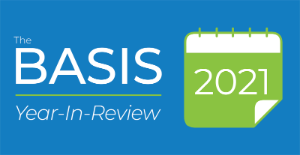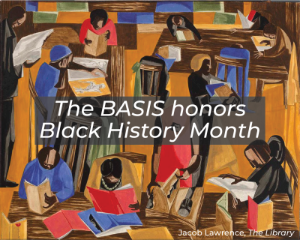 As we approach the end of 2021, we look back with gratitude on all that we’ve been able to accomplish with The BASIS, not just during this past year but for all 26 years since we first launched this resource. We’re grateful for readers like you who visit The BASIS to learn more about addiction science, and we’re grateful for the researchers whose work we summarize and the writers whose opinions we share via op-eds. And we’re especially grateful to organizations whose funding helps support The BASIS, including this year’s Special Series sponsor, the Greater Boston Council on Alcoholism. (Learn how to become a sponsor or donate as an individual here.)
As we approach the end of 2021, we look back with gratitude on all that we’ve been able to accomplish with The BASIS, not just during this past year but for all 26 years since we first launched this resource. We’re grateful for readers like you who visit The BASIS to learn more about addiction science, and we’re grateful for the researchers whose work we summarize and the writers whose opinions we share via op-eds. And we’re especially grateful to organizations whose funding helps support The BASIS, including this year’s Special Series sponsor, the Greater Boston Council on Alcoholism. (Learn how to become a sponsor or donate as an individual here.)
Let’s review some of the highlights of 2021 by counting down the most-read op-eds and science reviews of the year.
Most Read Op-Eds
- Our 5th most-read op-ed of 2021 was a letter written by Mr. Christopher Johnson, a Boston-area man who has experienced a substance use disorder. As part of our Special Series on Managing Addiction during COVID-19, Mr. Johnson shared how the pandemic affected his recovery journey. He could no longer go to AA meetings or his therapy sessions, and the isolation took a toll on him. However, through a local recovery support center, Mr. Johnson was able to get re-connected to the recovery community. Things started getting better and he has a brighter outlook now. His inspiring story of individual resilience shed a light on what people in recovery have experienced during this pandemic.
-
 Our Black History Month Celebration of Black Scholars of Addiction gave us all of the other most-read op-eds of 2021. Coming in at #4 was a piece written by Dr. Renee Johnson, Associate Professor at Johns Hopkins Bloomberg School of Public Health. In her op-ed, Dr. Johnson discussed the importance of considering youth adversity when addressing adolescent substance use. She recommended expanding substance use epidemiology to include monitoring the adversity that kids face and assessing how adverse experiences impact substance misuse and consequences. Incorporating youth adversity into substance use research can offer insight into new prevention interventions, such as trauma-responsive services and policy development aimed at structural changes.
Our Black History Month Celebration of Black Scholars of Addiction gave us all of the other most-read op-eds of 2021. Coming in at #4 was a piece written by Dr. Renee Johnson, Associate Professor at Johns Hopkins Bloomberg School of Public Health. In her op-ed, Dr. Johnson discussed the importance of considering youth adversity when addressing adolescent substance use. She recommended expanding substance use epidemiology to include monitoring the adversity that kids face and assessing how adverse experiences impact substance misuse and consequences. Incorporating youth adversity into substance use research can offer insight into new prevention interventions, such as trauma-responsive services and policy development aimed at structural changes. - Our third most-read op-ed was prepared by Dr. William Cloud, Professor at the Graduate School of Social Work at the University of Denver. In this piece, Dr. Cloud argued that the expression “addiction does not discriminate” is a myth that falsely implies addiction impacts all communities equally. In reality, structural inequalities have yielded uneven access to a range of personal, social, and physical resources that facilitate and sustain recovery efforts (i.e., recovery capital) for African American communities. These inequalities present key barriers to successful recovery from a substance use disorder among many African Americans. Dr. Cloud concluded “the ability to overcome difficult drug problems is quite unequal across race and class” and that policymakers should make a concerted effort to better allocate resources to mitigate this disparity.
- Our second most-read op-ed of the year, written by Shruti Khandai, Emery Smith, Fathudin Abdullahi, Matthew D. Moore, Dr. Charles Jonassaint, and Dr. Michael Stanton, was titled “Pain, Power, and Prejudice in the United States“. This piece discussed how the power-knowledge imbalance that normally characterizes the patient-doctor relationship can be compounded by conscious or unconscious racial bias, resulting in “crushing disparities in care experienced by Black patients in the United States.” The authors pointed to inadequate pain management and persistent distrust of the medical and scientific communities as especially harmful consequences. Khandai and colleagues closed with a call for physicians and scientists to hold themselves accountable for preventing conscious or unconscious racial bias from impacting their work in the future.
- Our most-read op-ed of the year was prepared by Dr. H. Westley Clark, Dean’s Executive Professor at Santa Clarita University. Dr. Clark described ways in which social determinants of health, including lack of access to adequate evaluations, lack of clinical advocacy, and perceived illegitimacy of co-occurring conditions, have historically hurt Black men with PTSD and alienated them from their families. He broadened the discussion to Black patients more generally, summarizing data about disproportionate federal funding for substance use disorder treatment. We hope that pieces like this, which shine a light on historical inequities and the harm they have created, will result in policies and practices that better serve Black patients and other groups who have been historically marginalized by the medical community.
Most Read Science Reviews
- The WAGER: The WAGER’s most-read science review of 2021 considered the overlap between investment, speculation, and gambling. The study it reviewed, by Jennifer Arthur and colleagues, revealed that while gambling and investment have little overlap, speculation exists as a middle ground between the two. Speculation is like investment in terms of how people engage in it, and it is like gambling in that both involve staking something of value on an outcome that is determined by a specific event. Readers might be curious about whether people who engage in a lot of speculation will require gambling-like interventions, and that’s still an open question.
- The DRAM: Readers had a lot of interest in a randomized trial by Jeremiah Weinstock and colleagues that examined an exercise program for sedentary adults with alcohol use disorder. As our review summarized, study participants benefited from receiving a gym membership–but those who also engaged in motivational interviewing and contingency management with a counselor benefitted even more. Could therapists incorporate these guided exercise components into alcohol use disorder treatment? These results suggest that sedentary clients will experience real benefits.
- STASH: Readers were interested in our review of a study that examined whether primary care provider attitudes and beliefs about people with opioid use disorder positively change after hearing personal narratives directly from individuals in active addiction recovery. Jeffrey Schlaudecker and colleagues found that, after hearing these personal stories, providers reported increased compassion for, and a deeper understanding of, challenges faced by persons with opioid use disorder. Contact-based interventions might reduce stigmatization of persons living with these conditions by healthcare providers.
- ASHES: Finally, our most-read ASHES post of the year was a review of a study that assessed the effect of a menthol ban on smoking cessation in Ontario. In their study, Michael Chaiton and colleagues found that the menthol cigarette ban was associated with an increase in successful quitting and number of quit attempts among menthol users. As other jurisdictions consider and implement bans, these positive long-term benefits of the Ontario ban can be a model for menthol bans elsewhere.
Whether you’re a casual reader, an addiction scientist, a clinician, or interact with The BASIS in some other way, we hope you found this year’s content useful and illuminating, and we hope you stay with us in 2022 and beyond.
Sincerely, The BASIS Team




